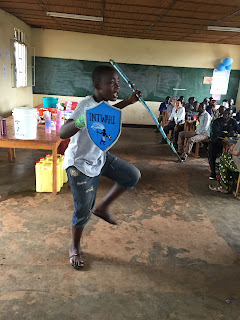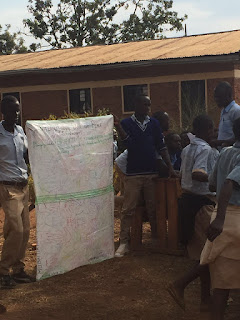I’ve officially been here for a year, so I think it is only
fair for me to share some of the wisdom I have gained from my experiences here.
This post is not child friendly so please be read with caution.
Lesson #1: NEVER eat the sambusa at the bus station, you
will for sure get food poisoning.
Lesson #2: Bleaching your water before putting it through
the water filter is more of a recommendation than a necessity.
Lesson #3: If it’s raining, there is a cultural expectation
that you’re napping.
Lesson #4: Always drink the milk. You might get sick, but it’s
better to take it and not insult your neighbors.
Lesson #5: Never leave your underwear on the floor. Mice
like to chew holes in them.
Lesson #6: NEVER trust what you think is just gas. It could
be the result of eating a bus station sambusa, and it might be more than just
gas.
Lesson #7: Expect all meetings to start at leasttttt 20
minutes late.
Lesson #8: 7:00am on a Saturday is a completely appropriate
time for people to start visiting you…
Lesson #9: Chickens DO NOT like it when you raid their
nests. Always make sure they are ALL out of the next boxes before going in.
Lesson #10: It is perfectly normal for someone to hand you
their baby on public transport and proceed to breast feed that baby while you
are holding it.
Lesson #11: You probably have chalk on your face. Dust
yourself off before you go to the market.
Lesson #12: Not all cows are friendly. Some of them will
chase you through your village until a 3 year old child with a stick comes to
save you.
Lesson #13: Yes. Those people are most likely laughing at
you. There may or may not be a reason. Laugh back and check yourself out when
you get home…
Lesson #14: You need a scrub brush to get the red dirt off
your skin. There is no other way.
Lesson #15: There isn’t enough soap in the world to get the
charcoal out from under your fingernails.
Lesson #16: Shaving your legs is a good way to get a staph
(staff?) infection. It’s better to just stay hairy until you have somewhere to
go that people will actually see your legs and judge your hygiene.
Lesson #17: Don’t just nod when you don’t understand… You
might accidentally accept a marriage proposal or marry off your poor unknowing
guest.
Lesson #18: Yes. That is probably your feet that you’re
smelling. It’s fine.
Lesson #19: Diarrhea is just a normal part of life. Always
carry pepto, ibuprofen, and antidiarrheals WHEREVER you go.
So this is just a short list of some of the lessons that I’ve
learned in the past year. Most of them are silly, but so very real. There are
so many things that we don’t think about back at home on a daily basis. On a
more serious note though, I have learned so many more things about myself,
about Rwandan culture, and about navigating through schools which have no resources.
Lesson #20: When you go to a school with no resources - No books.
No electricity. Nothing. – you will find some of the most creative and
motivated students and teachers that you will ever meet.
Lesson #21: Despite all of the sacrifices I made to come
here, the challenges that I have faced since my arrival, and navigating a
completely new and foreign culture every day, I feel like coming to Rwanda was
the right choice.
Lesson #22: A community-based culture might mean no personal
space whatsoever, but you never question whether or not people like you, know
who you are, or want you to be there. You always feel welcome.
Lesson #23: This is something that I’ve known for a long
time now, but it’s worth repeating. “Financial poverty” and “poor” are two
different things. I am surrounded by financial poverty, but I would never
consider anyone that I have met in the past year to be “poor”. They are rich in
heart, in spirit, and in community. As far as I am concerned, they are some of
the wealthiest people I’ve ever met.
Lesson #24: I am not a patient person. I have never been a
patient person. I’m not sure I will ever be a patient person, but I am learning
how to be flexible.



























